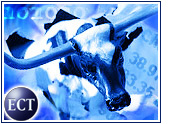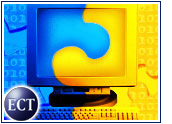
Internet media company Terra Lycos has launched a subscription-based online music service, Lycos Rhapsody, with the full cooperation of at least four major record labels.
The new service is designed not only to deliver music to Internet listeners, but also to help Lycos decrease its dependence on ad revenue, which has dropped considerably for most Internet companies.
Unlike onetime consumer favorite Napster, Terra Lycos’ service is not free and does not include download capabilities, although company executives said that feature is in the works.
While the service provides access to 10,000 albums, which the company claims is double the number available at other online music sites, it pales in comparison with free services Kazaa and Morpheus, which offer nearly unlimited choices to music lovers.
Despite its past popularity among users, Napster has been shut down since July 2001 by legal disputes with record labels over copyright issues.
In its heyday, the company offered virtually unlimited access to all types of music and users swapped files with abandon. But shortly after its assets were purchased by music giant Bertelsmann, Napster declared bankruptcy.
Que Sera, Sera?
Online music services face an uncertain future. Yankee Group senior analyst Michael Goodman told the E-Commerce Times that although nearly three-fourths of homes with broadband Web access use their computers to play music, the music industry has not decided how it will use the Web and is still unsure whether digital music is good or bad.
That indecision leaves questions about the long-term value of Napster and other file-swapping services.
“No one is quite sure what direction online music is taking overall,” Goodman said. “There are all these experiments under way, but no one model that has emerged. It looks like it may be some time before that happens.”
Terra Lycos has sidestepped the problems that hamstrung Napster. Lycos Rhapsody was co-developed by Terra Lycos and Listen.com, an online music company that will distribute the new service.
Listen.com has gone to great lengths to secure relationships with major labels, including Sony Music Entertainment, Warner Music Group, EMI Recorded Music and Bertelsmann AG, as well as a number of independent labels.
“Our company’s extensive syndication experience and music expertise will help ensure that Lycos Music offers a superior online listening experience that lets customers enjoy their music without limits or restrictions,” Listen.com CEO Sean Ryan said.
Waning Enthusiasm
Regardless of record company participation, Lycos Rhapsody will have to face a public that is less than enthralled with subscription-based services, instead preferring a free, shared music model. To date, competitive services created by the Big Five record labels, such as Pressplay and MusicNet, have met with lackluster response from the public.
David Pritchard, senior director of music, TV and film at Terra Lycos, expressed confidence that Rhapsody will find acceptance.
“Terra Lycos’ previous subscription-based services have exceeded expectations,” he said, noting that the company’s listeners are willing to pay “to listen to as much music as they want.”
Rhapsody’s service will be available at three different subscription levels. Tier 1 is a free radio service that lets listeners cruise through 20 FM-quality stations. For US$4.95 per month, Tier 2 subscribers can access more than 50 commercial-free radio stations, receive CD-quality sound and skip tracks. At Tier 3, users will pay $9.95 per month and will have the same perks as Level 2, plus unlimited on-demand audio streams.
Burning Questions
Before year-end, the service plans to introduce a feature that will let users burn CDs. However, that feature will require Listen.com to rework its license agreements with record labels.
The announcement came just as the International Federation of the Phonographic Industry (IFPI) said that recordable CD technology, also known as CD-R, has helped spawn a 50 percent increase in bootlegged music sales worldwide.
The federation attributed about 25 percent of bootlegged sales to CD-Rs, a significant increase from the 9 percent recorded the year before. At a press conference, IFPI chairman and CEO Jay Berman called global piracy “a highly organized activity.”













































Social Media
See all Social Media